Diving is an exciting sport and these days it is becoming more and more popular. With its popularity concerns about the reef and marine ecosystem is increasing. Just as we humans have started living eco-friendly lives on the land, divers also need to be responsible enough and work towards conserving the diving sites.
Irresponsible diving practices worldwide are leaving a detrimental effect on marine life. We all must try to become eco-friendly divers and not live with the guilt of having fun at the cost of the coral and the reef destruction. Here are some ways that can help us become eco-friendly divers:
Learn art of perfect buoyancy
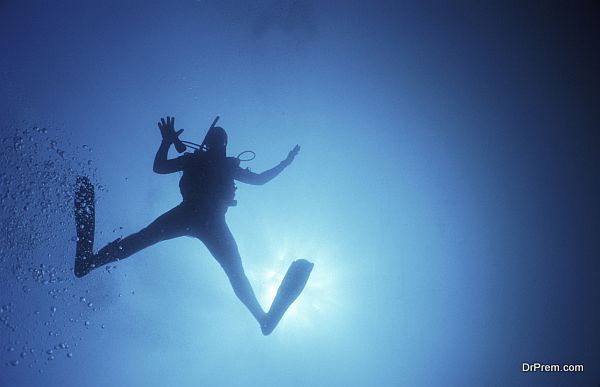
Most of the damage that divers cause to the reef is of course unintentional but is very dangerous for the marine life. This happens because divers do not know the perfect art of buoyancy. Some overweight divers go and crash into the coral, while some underweight divers damage the reef while trying to grip it and prevent them from floating upwards.
Whenever you dive over corals, you must ensure you do not touch them, or else they will die. You need to have proficient buoyancy skills for this, which you cannot learn in a day. Being an eco conscious person, you must swear that you would not dive unless you are proficient in the buoyancy skill.
Remember the coral reef policy
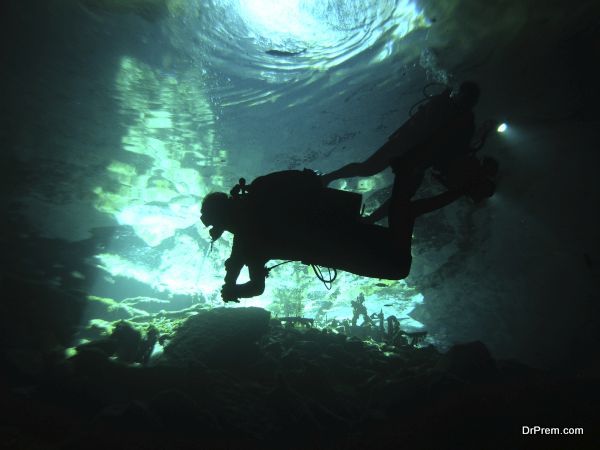
There is nothing wrong about being fascinated by the coral reefs underwater, but touching them certainly is. They are fragile, and even your slightest touch can kill them. You should always remember the “look, but don’t touch” policy, which is a good practice for every diver. Some divers stand on the reefs or grab them hard to stabilize their position, which is a sin. No need to stand, as you can observe plant and animal life while floating as well, and using a finger to stabilize yourself is enough.
Feeding or chasing marine creatures is not good
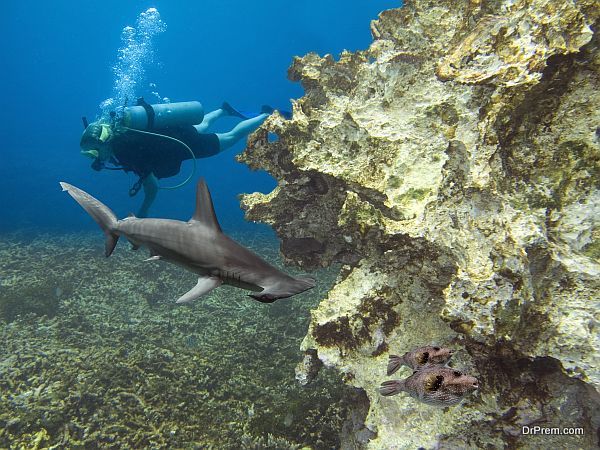
Watching marine creatures and trying to feed them, touching them, or chasing them is strictly prohibited. Few stupid and irresponsible divers continue with these malpractices, contribute to the pollution beneath, and disrupt marine life. They do not realize that their activities are not only harmful for the marine life but for them as well, as chasing marine creatures sometimes turn out to be fatal. Therefore, as an eco-friendly diver you must remember that you are a visitor in the foreign land, and you are supposed to observe things there and be a non-threatening guest.
Efficient Gear
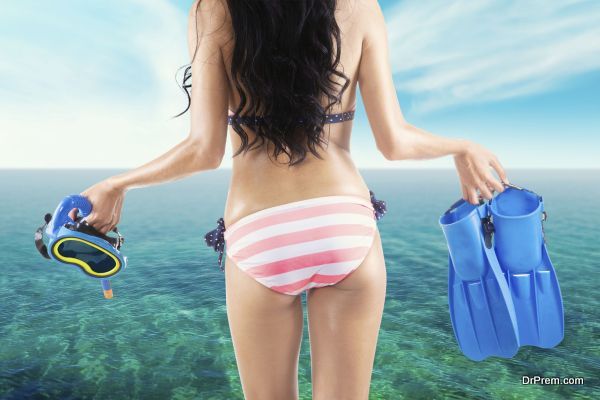
Your diving gear must be efficient, in the sense that it does not interfere with your diving and the marine life beneath. Some divers do not pay attention and die with their loose gear, hanging loose and disrupting the entire reef. You must always ensure that your gear is streamlined, and doing this is not only profitable for the marine life but for the diver as well.
A streamlined gear improves the diver’s flow in the water and does not let gauges and octopus drag on the seafloor. Invest on high quality clips and attachments that prevent any such happening because they nicely and neatly hook up the gauge. The same goes for the torches and cameras you carry along, they should never touch corals reefs.
Become a marine debris activist
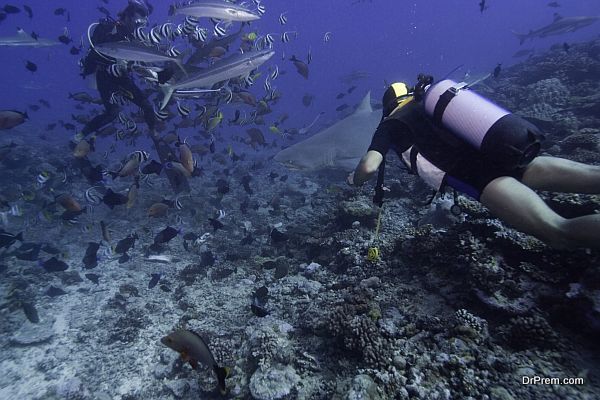
While on your dive, you trace some debris on the seafloor. If it is light or you think you can easily and without hurting marine life pick it up and take it out with you, go ahead. If not, you must report it to your master or the marine debris committee, so that they get the debris cleared at the earliest.
Responsible divers are the best divers. Having fun while contributing towards maintenance of marine life is the best every diver can do.




